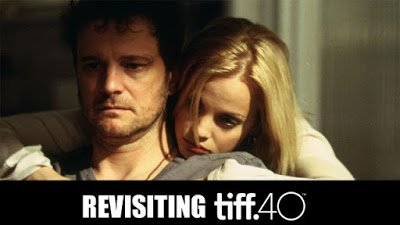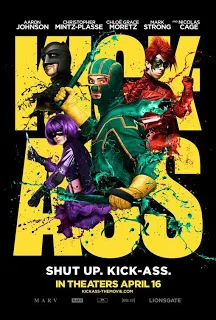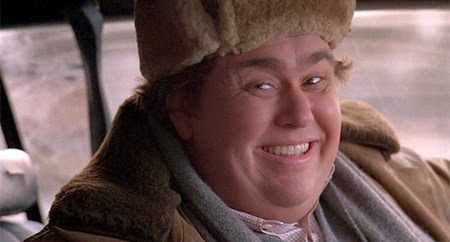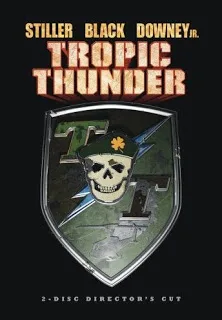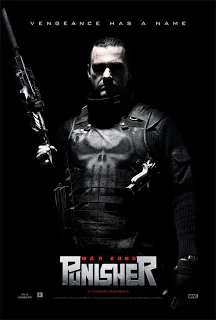Revisiting TIFF 2004: Trauma
In celebration of the 40th anniversary of TIFF, I will be revisiting one film from each year I attended the festival. Please be aware that these discussions may include SPOILERS.
I had a much easier time getting tickets for my second year of the festival, partially because this was the year TIFF introduced online ordering. However, that doesn’t mean the year was without its hiccups. One of my selections for that year, Rob Stefaniuk’s Canadian dark comedy Phil the Alien, went off-sale as I was processing the order and another screening, Stephen Chow’s Kung-Fu Hustle, was cancelled the night before, due to a damaged print.
As such, the only film that I ended up seeing for my second year at TIFF was Marc Evans’ psychological thriller Trauma. The film was part of the now discontinued TIFF programme Visions and if programmed today, I would expect Trauma to be part of the Vanguard programme. Marc Evans was previously at TIFF in 2002 for the Midnight Madness selection My Little Eye, which is not a fact that I was aware of at the time I got my ticket.
I should probably explain that, even though the programme now makes up a good chunk of my festival experience every year, I was initially very squeamish of the Midnight Madness programme (and horror films in general). It would still be a few years before I was fully a horror fan and I don’t know if I would’ve have even gone to Trauma if I knew about the dark places that the film goes. As a brief aside, I should note that I saw Trauma, at the Elgin Theatre, the same night as the premiere of James Wan’s Saw at Midnight Madness. Theoretically, I could have gotten tickets to both and walked over the the Ryerson after Trauma. However, I doubt my 22 year self was ready for Saw.
If there is a thing that stands out about Trauma, it is the fact that it stars Colin Firth. Firth has made a career of playing gentlemen-like roles and it is somewhat out of place to see him in a psychological thriller. Granted, Trauma is now an eleven year old film and Colin Firth hadn’t yet made films like The King’s Speech. However, he still doesn’t strike me as one of those actors who would do genre films, Kingsman: The Secret Service aside, which makes Trauma a unique part of his filmography.
I’m going to have to go into MAJOR SPOILER territory in my discussion of Trauma, since I really remember the ending of the film leaving me shaken, to the point that I went to a nearby bar to feel better. The ending makes two revelations at roughly the same time: 1) Firth’s character of Ben is schizophrenic and he had been imagining the conversations he has been having the entire film with his psychiatrist 2) His growing insanity drives Ben to brutally kill Mena Suvari‘s character of Charlotte.
While Trauma‘s very dark ending somewhat caught me off-guard when I saw the film at TIFF in 2004, during this rewatch I realized that there are some quite obvious signs that Ben is not alright in the head. However, the question that is asked throughout the film is whether Ben’s mental instability is caused from the PTSD of his car crash and apparent death of his wife or if this has been something that he had been struggling with for all of his life.
Something new that I realized from this rewatch of Trauma was in how Ben apparently believed that Charlotte was just another of his many hallucinations, created out of his love for the book Charlotte’s Web and meant as a replacement for his dead wife Elisa (Naomie Harris). When Elisa turns out to be very much alive, it removes Ben’s need for Charlotte. However, when Charlotte turns out not to be a hallucination, it’s likely what drives Ben over the edge, with him feeling a need to “get rid of her.”
I never considered the uneasiness I felt after watching Trauma to be a fault of the film and I have to say that I actually like the places that it goes. Of course, knowing what happens didn’t make the ending any easier for me to watch the second time around. If anything, it increased my discomfort during the scene.
One advantage of seeing a film more than a decade later is that you get to recognize supporting actors that you didn’t know of at the time. Case in point here would be British character actor Sean Harris, who has a small role in Trauma as the caretaker of the building Ben is living in. There’s also Scottish actor Tommy Flanagan, and his very distinctive scarred face, as Ben’s friend Tommy.
Trauma never really went anywhere after it screened at TIFF and I’m pretty sure that the film just went straight to DVD. Marc Evans actually proceeded to abandon the thriller genre for his subsequent films, beginning the 2006 autism drama Snow Cake. However, Trauma is still a thriller worth checking out and it’s amazing that I wrote a whole column on the film without once mentioning the ants.

